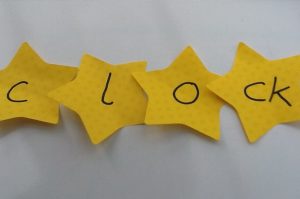
Do you agonise over your child’s spellings? Will your child do everything to avoid learning them? Does your child learn some of the words, only to forget them again?
Why do Teachers send home spelling lists?
Spelling tests are probably school policy! And for some children, they help. These children look at the words, memorise them and hey presto – job done!
Why is Rote-learning Spellings a Waste of Time?
When I look at the psychological research done on developing a good memory, I never see anyone recommending rote learning!
People who make a living with their outstanding memories, often demonstrate how they can learn pages and pages of telephone numbers. Do you think they do this by rote learning? I don’t think so!
I do realise that many children can learn their spellings very easily– that’s great, but how many words are there in the English Language? A lifetime of weekly spelling tests will cover only some of these words. Where are the tools to attack the rest?
Why do Parents make Children Prepare for a Spelling Test?
As a parent, you probably want to create good habits for the future, and encourage your child to do the work set by the teacher, even though your child resists.
I fully agree with this sentiment, but always suggest doing something more useful with the list instead: something that improves both reading and spelling?
Why not try a New Way of Working with Spellings?
Here is an imaginary spelling test (yes they are as random as this!):

Let’s do something useful and fun with it!
Begin by asking you child to listen for the sounds in each word and to say them, one at a time:

If she can’t hear each of the sounds to begin with, you can just tell her what they are. In time, she will learn to hear them, especially if you keep reminding her to listen very carefully. After all, she will probably be having a spelling test every week and getting lots of practice. Alternatively, play ‘Listening Fingers’ (see my handbook below).
Why not buy some fancy shaped sticky notelets – there are loads of lovely ones in the shops! Lots of colours! Lots of shapes! Add a mix of colorful pens too!

Now chose a word from the list, e.g. clock. Peel off one notelet for each sound in the word and stick it on the table. Have lots of coloured pens, and let your child choose one to write with.
Ask her to write one sound (not letter) on each notelet!

Now ask your child to sound out the word, one sound at a time and then say the word: c l o ck : clock. Finally stick the word on the wall and say well done!
Maybe your child won’t remember all the words you work with. But would she anyway? It is more important that you are helping her to listen for the sounds in words, such an important skill for reading and spelling. It makes it easier to write new words, one sound at a time.
Make Spelling tests work for all words!
These are skills your child can use in the future for writing new, unfamiliar words, when there is no one around to help her. Hopefully, too, you have both had a bit of fun with the fun coloured pens and pencils, and the variety of sticky notelets.
Finally and most importantly, your relationship is intact! You haven’t made your child miserable, and yourself frustrated, trying to make her rote learn words, a task she will resist, and ultimately, words she will only forget anyway!
You can read more about how to help your child:
Please Help Me! I Really Can’t Read!
There is a copy of my book available on this website. Please download a free copy, with my compliments..
